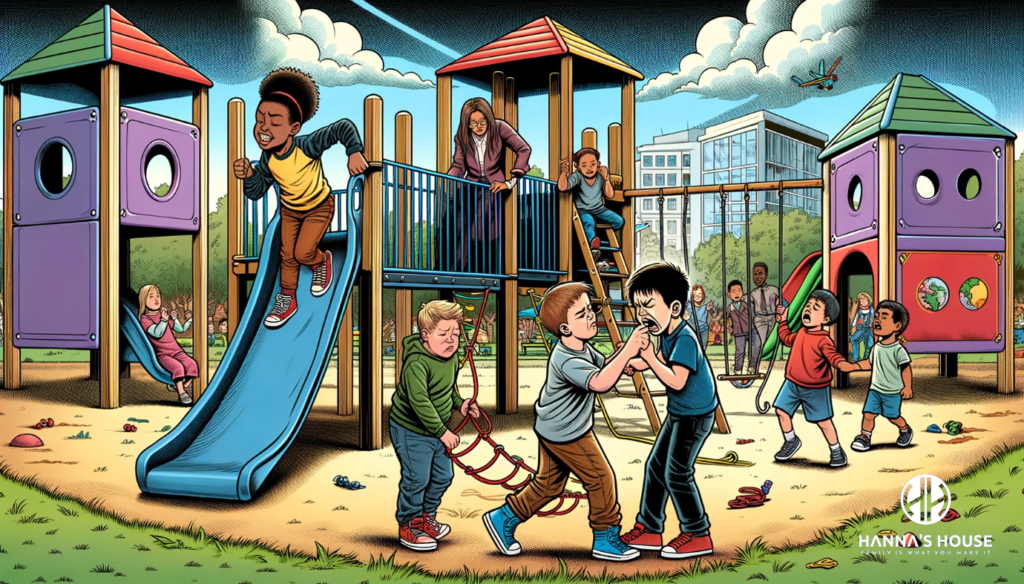Did you know that over 550,000 children in the United States are in foster care? This staggering number highlights the profound impact of the foster care system on young lives. From providing stability and support to offering a chance for a brighter future, foster care plays a crucial role in shaping the well-being of these vulnerable children.
Every child deserves a safe and nurturing environment to thrive in, but many face challenges beyond their control.
Key Takeaways
- Actionable Insight:
- Encourage open communication and provide mental health support to address the psychological impact of foster care on children.
- Foster positive relationships and provide stability to support healthy emotional and social development in foster children.
- Relevance:
- Understanding the educational outcomes and behavioral patterns of children in foster care can help caregivers and educators provide tailored support for academic success and emotional well-being.
- Connection to Audience:
- By recognizing the challenges within the foster care system and advocating for positive interventions, individuals can contribute to creating a more supportive environment for foster children.
- Effective Interventions:
- The long-term effects of foster care emphasize the importance of implementing effective interventions early on to mitigate negative outcomes and promote resilience in children transitioning to adulthood.
Psychological Impact

Trauma Effects
Recognize the signs of trauma in foster children. Behavioral changes like aggression or withdrawal may indicate underlying trauma. Emotional responses such as fear or anger can also be red flags.
Understand how trauma impacts behavior and emotions. Foster children may exhibit trust issues and struggle with forming relationships due to past experiences. Trauma can lead to anxiety and affect their self-esteem.
Learn strategies to help foster children cope with trauma. Providing a safe and nurturing environment is crucial for healing. Encouraging open communication and offering therapy sessions can aid in processing traumatic experiences.
Attachment Issues
Address attachment challenges in foster care relationships. Building trust takes time, so be patient and consistent in your interactions with foster children. Recognize that attachment issues may manifest as resistance or clinginess.
Support the development of secure attachments by showing empathy and understanding towards the child’s needs. Engage in activities that promote bonding, such as cooking together or playing games that encourage teamwork. These activities can strengthen emotional connections.
Implement bonding activities to strengthen attachments, such as creating routines that provide stability for the child. Celebrate milestones together and engage in positive reinforcement to build a sense of security within the relationship.
Mental Health

Anxiety Disorders
Identify symptoms of anxiety disorders in foster youth, including excessive worry, restlessness, and difficulty concentrating. Create a calming environment at home by establishing routines and providing opportunities for relaxation techniques like deep breathing exercises.
Provide a safe environment to reduce anxiety levels by maintaining clear expectations and boundaries within the household. Offer reassurance during stressful situations and validate the child’s feelings to help alleviate their anxiety symptoms.
Collaborate with mental health professionals for effective treatment by seeking therapy options tailored to meet the specific needs of each foster child experiencing anxiety disorders.
Depression
Recognize signs of depression in foster children, such as persistent sadness, loss of interest in activities, or changes in sleep patterns. Encourage open communication about feelings of sadness while validating their emotions without judgment.
Promote healthy coping mechanisms to manage depression through engaging in physical activities, creative outlets, or mindfulness practices like journaling or meditation.
PTSD
Understand the triggers of PTSD in foster care related to past traumatic events experienced by the child. Implement trauma-informed care practices focusing on creating a safe environment where triggers are minimized. Offer specialized therapy for children with PTSD tailored towards addressing their specific traumas through evidence-based interventions.
Emotional Development

Identity Formation
Support foster youth in exploring their sense of self. Encourage positive self-identity development by acknowledging their uniqueness and strengths. Provide safe spaces for self-expression and self-discovery through art, music, or writing activities.
Self-esteem Challenges
Boost self-esteem by offering consistent positive affirmations and words of encouragement to foster children. Help them build confidence in their abilities by recognizing their achievements, no matter how small. Celebrate milestones together to reinforce a sense of accomplishment and enhance self-worth.
Caregiver Relationships
Foster positive relationships between foster children and caregivers to create a nurturing environment. Establish trust through open communication, active listening, and consistency in caregiving approaches. Provide training and ongoing support for caregivers to enhance their understanding of trauma-informed care practices.
Social Development

Building Relationships
Teach foster children social skills. Encourage peer interactions, fostering friendships among them. Create opportunities for connecting with mentors who offer guidance and support.
Social Skills
Develop vital social skills through role-playing activities and consistent practice. Teach conflict resolution techniques and effective communication strategies to navigate relationships successfully. Promote teamwork and collaboration in various social settings.
Community Integration
Facilitate involvement in community activities such as sports teams or clubs, helping foster children feel connected to their surroundings. Connect them with local resources like counseling services or extracurricular programs for additional support. Encourage participation in community service projects to instill a sense of giving back.
Educational Outcomes

Academic Performance
You should ensure that academic support is provided according to each child’s unique needs. By tailoring support, you can help foster children excel in their studies.
Collaborate with schools to address educational challenges effectively. This partnership can lead to improved learning outcomes and a more conducive academic environment for foster children.
Set specific academic goals for each child and track their progress regularly. Celebrate every achievement, big or small, to motivate them towards continuous improvement.
School Stability
Advocate for maintaining school stability even during placement changes. Consistent schooling plays a crucial role in the academic success of foster children.
Ensure there is continuity in schooling whenever placement adjustments occur. This consistency fosters a sense of normalcy and routine that positively impacts educational outcomes.
Promptly address any school-related issues that arise to maintain stability in the educational journey of foster children. Timely interventions can prevent disruptions and setbacks in their academic progress.
Support Systems
Building a robust support network around foster children is essential for their overall well-being and academic success. Encourage strong connections with caseworkers, therapists, educators, and other key individuals involved in their care.
Collaborate closely with caseworkers, therapists, and educators to provide comprehensive support tailored to the unique needs of each child under your care. This multidisciplinary approach ensures holistic development and growth opportunities.
Engage extended family members as well as mentors who can offer additional layers of support beyond the traditional caregiving roles. These extra pillars of support contribute significantly to the emotional resilience and overall success of foster children.
Behavioral Patterns

Positive Behaviors
Encouraging positive behaviors in foster youth is crucial for their development. Reinforce these behaviors by offering praise and rewards when they exhibit them. Model appropriate behavior and teach them the expectations, guiding them towards positive interactions.
Implementing consistent behavior management strategies helps foster youth understand boundaries and consequences. By setting clear rules and expectations, you create a structured environment that supports their growth. Your guidance plays a vital role in shaping their behavior positively.
Risk Behaviors
Identifying potential risk factors and behaviors in foster youth is essential to provide necessary support. Educate them on the consequences of engaging in risky behaviors to help them make informed decisions. Offering counseling and interventions can address underlying issues contributing to these behaviors.
Addressing risky behaviors promptly can prevent further challenges down the road. By intervening early, you can guide foster youth towards healthier choices and habits. Providing a safe space for open communication allows them to express their concerns and receive appropriate guidance.
Intervention Strategies
When facing behavioral challenges, implementing evidence-based interventions is key to fostering positive outcomes for foster youth. Collaborate with professionals such as therapists or counselors to develop comprehensive intervention plans tailored to individual needs. Monitoring progress regularly enables you to track improvements and adjust strategies accordingly.
Transition to Adulthood

Independence Skills
Teach life skills like cooking, budgeting, and time management. By gradually increasing autonomy and responsibility, foster independence in foster youth. This approach helps them transition smoothly into independent living.
Supporting foster youth in developing independence skills is crucial. Providing guidance on practical tasks such as cooking empowers them to take charge of their daily lives. Budgeting lessons equip them with essential financial management abilities.
Financial Stability
Advocate for financial resources that cater to the diverse needs of foster children. Offering financial literacy education ensures they have the knowledge to make sound money decisions. Guiding them in budgeting and managing finances sets a strong foundation for their future stability.
Financial stability plays a vital role in fostering successful transitions for youth leaving care. Assisting young adults in understanding the importance of saving and investing instills responsible financial habits early on. This support system encourages financial independence and resilience.
Housing Security
Ensuring stable and safe housing arrangements are essential for the well-being of foster youth transitioning into adulthood. Addressing issues related to housing instability and homelessness risks is crucial when supporting these individuals’ journey towards self-sufficiency. Collaborating with housing agencies can help secure long-term solutions that provide a sense of security and belonging.
Foster Care System Challenges
System Barriers
You must understand the systemic barriers that hinder its effectiveness. These barriers often include bureaucratic obstacles that make it difficult for foster youth to access essential services. By advocating for policy changes, you can help overcome these hurdles and ensure a smoother experience for children in foster care. Supporting foster youth in navigating the complex systems for services is crucial to ensuring they receive the support they need.
Support for Families
In the realm of foster care system challenges, providing resources and support for biological families is vital. Offering family counseling and reunification services can strengthen familial bonds, ultimately benefiting both children and parents involved in the system. Empowering families with tools to enhance relationships and stability sets a strong foundation for successful reunifications and long-term well-being.
Policy Improvements
Advocating for policy reforms is essential in addressing gaps within the foster care system. By pushing for improvements, such as enhanced services and protections for foster children, you contribute to creating a safer environment within the system. Collaborating with policymakers to prioritize child welfare legislation ensures that necessary changes are made at a structural level to benefit all individuals involved.
Positive Interventions
Parenting Support
Parenting support is crucial in foster care, providing you with the necessary tools to nurture and guide foster children effectively. By offering parenting classes and support groups, you can connect with other foster parents facing similar challenges. These platforms enable you to share experiences, seek advice, and build a supportive community.
Guidance on trauma-informed parenting techniques equips you with the knowledge to understand and respond appropriately to the unique needs of foster children who have experienced trauma. Learning how to create a safe and stable environment fosters trust and security within the parent-child relationship. Through training sessions and access to resources, you can enhance your caregiving skills significantly.
Behavioral Health Support
Access to mental health services for foster youth is vital in addressing their emotional well-being. By ensuring that these services are readily available, you contribute to supporting the mental health of vulnerable children in your care. Collaborating with therapists and counselors allows for tailored interventions that address specific behavioral health needs effectively.
Advocating for comprehensive behavioral health support within the system is essential for improving outcomes for foster youth. By raising awareness about the importance of mental health services and pushing for better integration of these services into the foster care framework, you play a significant role in enhancing the overall well-being of children in foster care.
Educational Support
Educational support plays a key role in empowering foster children to reach their academic potential. Providing tutoring and academic assistance ensures that these children receive the educational guidance they need to succeed academically. By collaborating with schools to develop individualized education plans, you help tailor learning strategies according to each child’s unique strengths and challenges.
Advocating for educational rights and resources is crucial in ensuring that foster youth have equal opportunities for academic success. By actively engaging with educational institutions, policymakers, and relevant stakeholders, you advocate for policies that promote educational equity among all students, including those in foster care.
Long-term Effects
Adult Well-being
Support the transition of foster youth into adulthood by providing them with essential life skills and resources. Help them navigate the challenges of independent living through guidance on managing finances, finding housing, and accessing healthcare services. Encourage mental health and well-being in adulthood by offering counseling, therapy sessions, and access to support groups.
Offer valuable insights on independent living skills such as cooking, cleaning, time management, and budgeting to empower foster youth in their journey towards self-sufficiency. Emphasize the importance of self-care practices like mindfulness exercises, stress management techniques, and healthy coping mechanisms for overall well-being.
Employment Success
Assist foster youth in exploring various career paths based on their interests and strengths. Provide them with opportunities for vocational training to enhance their job readiness skills. Support their professional growth by connecting them with internships that align with their career goals.
Encourage foster youth to pursue sustainable employment options that offer stability and long-term success. Help them build resumes, prepare for interviews, and develop effective networking strategies to secure meaningful employment opportunities.
Relationship Stability
Promote the development of healthy relationship skills among foster youth by teaching them about trust, respect, communication, and boundaries. Offer counseling services to address any emotional or relational challenges they may face during their transition into adulthood.
Provide ongoing support for maintaining stable relationships by offering mentorship programs or peer support groups where foster youth can connect with others who share similar experiences. Guide them on effective communication strategies and conflict resolution techniques to nurture positive relationships in their personal and professional lives.
Closing Thoughts
Considering the psychological, emotional, social, and educational aspects discussed, it’s evident that foster care has a profound impact on individuals. From shaping behaviors to influencing long-term outcomes, the system plays a crucial role in the lives of those involved. Despite facing challenges, positive interventions can make a significant difference in mitigating the negative effects and fostering better transitions into adulthood.
Reflect on these insights and consider how you can contribute to supporting individuals in foster care. Whether through volunteering, advocating for policy changes, or simply spreading awareness, your actions can create a ripple effect of positivity in the lives of these vulnerable individuals. Your support and understanding can make a world of difference in their journey towards a brighter future.
What are the psychological impacts of foster care on children?
Foster care can lead to various psychological impacts on children, including feelings of abandonment, low self-esteem, and attachment issues. It is crucial for caregivers to provide emotional support and stability to help mitigate these effects.
How does foster care influence social development in children?
Foster care can impact a child’s social development by affecting their ability to form trusting relationships and interact with peers. Foster parents play a vital role in providing a supportive environment that promotes healthy social skills and interactions.
What are some common behavioral patterns observed in children in foster care?
Children in foster care may exhibit behavioral challenges such as aggression, defiance, or withdrawal due to past traumas or disruptions. Positive reinforcement strategies, therapy, and consistent boundaries can help address these behaviors effectively.
How does the transition to adulthood affect individuals who have been in foster care?
The transition to adulthood for individuals who have been in foster care can be particularly challenging due to limited support systems. Programs focusing on life skills training, education assistance, and mentorship play a crucial role in helping them navigate this critical phase successfully.
What are some long-term effects experienced by individuals who have been through the foster care system?
Individuals who have experienced foster care may face long-term challenges such as higher rates of homelessness, mental health issues, and difficulties maintaining stable relationships. Continued support services post-foster care can significantly impact their long-term outcomes positively.
